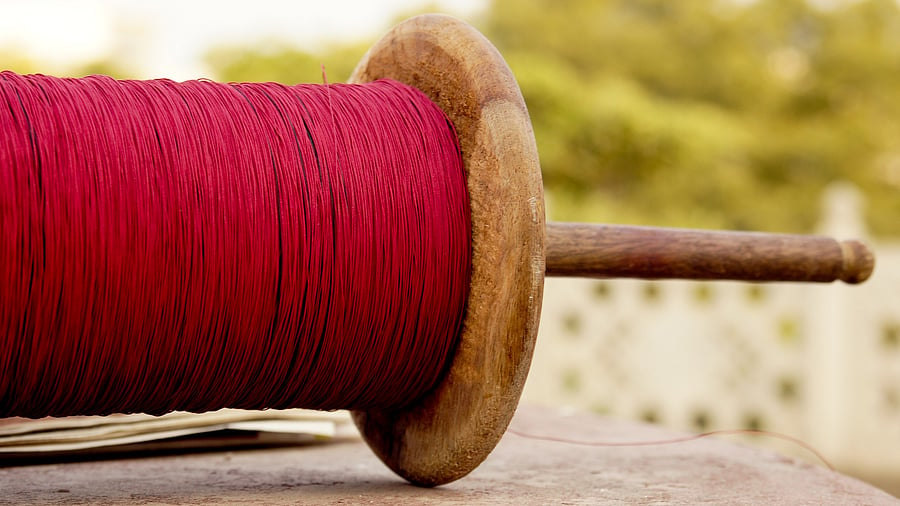
Representative image showing kite 'manja'.
Credit: iStock Photo
Hyderabad: The Hyderabad city task force police have apprehended 148 persons and filed approximately 107 cases against those involved in the sale of deadly Chinese manja string for kite flying. The use of Chinese manja, a synthetic nylon string coated with abrasive materials like powdered glass or metal, poses significant risks to public safety, wildlife, and the environment.
Despite being banned in several regions, the availability and use of Chinese manja during kite festivals and other events continue to raise serious concerns, particularly during the Sankranti season. Ina previous incident a person had died due to the use of Chinese manja. The term "Chinese manja" refers to strings coated with crushed glass, which is dangerously sharp and have caused fatal injuries by cutting through the skin of birds, animals, and humans.
Keeping in view the past experiences and incidents, the Commissioner of Police, Hyderabad City, CV Anand, alerted all the Task Force Teams and Law & Order Officers well in advance. As a result, the Task Force 7 teams, along with SHOs of concerned police stations, have made several raids and booked 107 cases in which they apprehended 148 accused persons who were indulging in the illegal business of prohibited Chinese manja and seized 7334 Chinese manja bobbins worth around Rs 90 lakhs. This has significantly reduced the availability of Chinese Manja to almost nil.
As of now, there have been no reported harmful incidents threatening human and animal life. The local dealers, who sell thread manja, are delighted with the surge in sales due to the unavailability of Chinese manja, which has resulted in sufficient profits for their seasonal and traditional business.
Despite the National Green Tribunal’s ban on the use of Chinese manja in 2017, the sale and use of this hazardous material persists across various parts of India. “This disregard for the law is troubling as it turns a joyous occasion into a death trap for birds, animals, and humans. Not only does this jeopardise public safety and animal welfare, but it highlights the urgent need for authorities to enforce stricter measures. At the same time, we urge the citizens to celebrate a compassionate Makar Sankranti. When you are out shopping for this Sankranti, please buy cotton threads to fly your kite. Do not pay for something that is not only illegal but also cruel and can injure and kill those around you,” said Humane Society International/India managing director Alokparna Sengupta.
In addition to animal suffering, synthetic manja poses a significant environmental threat. Since it is non-biodegradable, it can stay in the environment for years, causing lasting pollution. Often discarded in public spaces and water bodies, it endangers wildlife and marine life, as animals may become entangled in it or mistake it for food, leading to severe injuries or death, added Alokparna Sengupta.